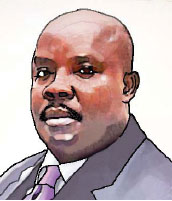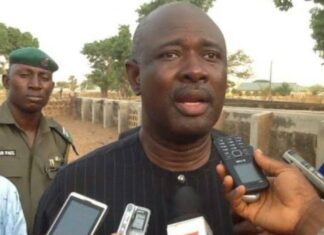The story of the Peoples Democratic Party (PDP), Nigeria’s leading opposition political party, is not one that can be exhausted in a setting. This, perhaps, is coincidental; or providential as some say.
Just as the party, at its height, had appropriated the claim of the largest political party in Africa, the dimensions of its story have been those of an octopus. Both at its fame and its current lowest point, PDP has always defied precise prediction.
But one thing that cannot be contested by even its committed members (assuming there are still some) and its supporters (if there are still) is that the party has become a bungled dream, in a way.
Even when it had been thought that managers of the party would learn from its disastrous outing in the last general elections, nothing seems to have been learnt. In the process, the slide continues.
If there had been any shred of hope on the party rising from its obviously comatose position, especially at the national level, the carriage of its leading figures in the build-up to its national convention scheduled to take place yesterday, had made total nonsense of such.
Even without mouthing it, it has become obvious to even any casual observer that most of the remaining members of the party are merely with their body in it but with their mind elsewhere.
Of course, it may be convenient to watch from the sideline and say, ‘it is their thing’. That may be correct. After all, it is not everybody that is a politician. Not all the politicians belong to its fold, moreso. But whatever any person may make of the current situation in PDP, it points to a sorry tale in the country’s political development.
The problem with developments in the party is not that of losing an election. That is normal in democracy. It is rather the sheer inability of the political class to apply the party in instituting a credible and identifiable democratic culture in the land.
At its formation on July 29, 1998, the facilitators of PDP were guided by far-reaching visions. They had for instance dreamed of a party that would put the Nigerian nation on a new phase of political engineering.
Part of their intention was to put in place a political platform that would ensure a “re-creation of civil political institutions, reconciliation of Nigeria, rekindling of the spirit of unity and brotherhood in the polity and the revitalisation of powers of the people to build a prosperous industrial democracy”.
Propelled by these lofty ideals, the founders of the party had aimed at bringing together all patriotic and like-minded Nigerians into a single formidable party, capable of renewing and refocusing the loyalties and productive energies of the nation to work for national reconciliation, economic and social reconstruction, respect for human rights and rule of law, and to restructure the country in the true spirit of federalism.
Their long term aspiration was to erect a framework that would ensure a just and equitable distribution of power, resources, wealth and opportunities to conform with the principles of power shift and power sharing, rotation of key political offices and equitable devolution of powers to zones, states and local governments, to create socio-political conditions conducive to national unity and to defend the sanctity of electoral democracy.
The encompassing principles of the party were adequately complemented by an embracing motto – Justice, Unity and Progress – while the slogan of the party instructively acceded “power to the people”.
To add up, the PDP had in its fold a generous spread of the nation’s first rate politicians. It also appropriated to itself the tag of the “largest political party in black Africa”.
In a way, its claim of greatness paid off handsomely, initially, as it garnered many electoral victories, though, often questionable in some cases.
How then did the party get it wrong? And where has that taken the party to? These are the questions that many chieftains of the party do not seem to ask themselves or conveniently choose to ignore. This is why PDP has remained a toddler at 18; a scarecrow of sorts and indeed a shadow of its old self.
It is the convenience to dodge this question that has seen the organisation callously raped by its officials and members who only see in it a platform for attaining political offices.
This accounts for the nauseating culture of impunity in the party. It is this stinking culture that has seen mere political upstarts, who ordinarily should take back stage in the organisation, assuming positions of importance in its affairs.
This is why, from the skewed emergence of Olusegun Obasanjo as its presidential candidate at the 1998 Convention in Jos, Plateau State, PDP has not had any transparent primary even in its state chapters. The party has also not had any democratically-elected National Chairman since the erstwhile Vice President, Alex Ekwueme, and former Plateau State governor, the late Solomon Lar, occupied the office in interim capacity. What has rather been the norm is a culture of imposition and absence of internal democracy. The trend, sadly, replicates in the state wings.
For a party that sells the impression of clawing itself to power three years ahead, the expectation had been that of a radical departure from this unrewarding trait. But that seems far-fetched.
The danger is that All Progressives Congress (APC) may have a free rein to ride roughshod on Nigerians in the absence of a viable alternative. Somehow, the ruling party appears to be enjoying that vacuum, hence one year after coming to power, it is still confused on what to do. And Nigerians have remained the losers.

- Advertisement -
- Advertisement -
Must Read
FG disagrees with El-Rufai, marketers, insists fuel subsidy has been removed
FG, however, stated that every government has the responsibility to cushion the impact of economic hardship on its citizensBy Kehinde Okeowo










